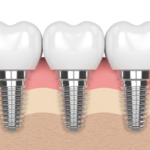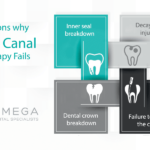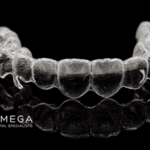What Can Cause Cold Sore?

Table of Contents
What is a cold sore?
Cold sore, also known as fever blisters, are highly contagious sores that appear on the face as raised blisters on and near the lips. They may also appear on your chin and under your nose. Cold sores appear in varying severity and can resemble a large raised pimple or a massive open sore that has burst. This is because cold sores usually start as a painful tingling that develops into a raised bump then blisters form, which burst and weeps within a few days.
When cold sores appear and start to have a recurring reappearance over time, they can be extremely irritating and cause you to feel less confident about your appearance. If you suffer from cold sores, you should know what causes them and how to keep the condition at bay.
What causes cold sores?
Both cold sores and fever blisters are caused by the herpes simplex virus type I (HSV-I) Oral herpes is HSV-1 which can transmit to anyone of any age or gender, and should not be confused with genital herpes (the HSV-2 virus.) The HSV-1 virus is transmitted through contact involving saliva which makes activities like kissing and the sharing of utensils, drinking straws, and glasses risk factors if the person you are doing these things with has the virus.
Pregnant women who carry the HSV-1 virus risk transmitting oral herpes to their children. Infants and children are at increased risk for oral herpes in environments where the HSV-1 virus is a significant public health risk. HSV-1 vaccinations can help children avoid oral herpes later in life, but the vaccine is only effective if they were never infected.
Cold sores are highly contagious, and care must be taken in their treatment and when you come into contact with other people who want to prevent transmission of the virus.
What is the chief difference between cold sores and canker sores?
While often confused with cold sores, canker sores (aphthous stomatitis) are oral irritations that develop inside the mouth and are not caused by the herpes simplex virus. Unlike cold sores, canker sores are not contagious as they are essentially ulcers. While cold sores appear on the lips and other parts of the face, canker sores stay contained to the inside of your mouth. They develop most commonly inside the cheeks and lips, but can also form on the roof of your mouth, at the base of your gums, and on your tongue.
Canker sores can be singular or numerous and range from mildly bothersome to extremely painful. While cold sores are specifically linked to herpes simplex, canker sores have multitudinous causes. They can be triggered by something as simple as acidic food or allergic reactions, or an infection that develops when you bite your lip or inner cheek from eating too fast. Stress and trauma also contribute to canker sore development, and oral injuries and menstruation may also trigger canker sores to appear.
However, canker sores are a common symptom of more serious diseases like Behcet’s Syndrome, Crohn’s disease, vitamin deficiencies, autoimmune disorders like AIDS, and lupus. HIV positive individuals are at higher risk for developing canker sores.
Most of the time, canker sores can be easily treated with over-the-counter pain relief gels and often go away on their own within 3-10 days. If it has been longer than two weeks since the canker sores appeared and they are extremely large and painful, you may need steroid medications or injections. You should see your physician right away to ensure that they aren’t signs of a more serious condition.
You should also seek out a periodontist or physician if the sores are unusually large (about half an inch wide). If you are developing more canker sores than normal, the frequency at which you develop canker sores have increased, and your sores are accompanied by other ailments like rashes, diarrhea, fever, headaches, and consistent joint pain.
How long do cold sores last?
Depending on how long you have been carrying the HSV-1 virus, cold sores can last anywhere from 1-2 weeks. Reaching blister stage then crusting varies, but 3-5 days after the first appearance is typical. Once the crusting has completed, cold sores usually heal completely without scarring within 8-10 days.
How can I treat cold sores?
Since cold sores are caused by a virus, there is no way to kill the herpes simplex virus. It goes into remission and reappears just like the common cold or more severe viruses like HIV.
Medications like Valtrex, Famvir, and Zovirax can help stave off the formation of cold sores and shorten their duration but will not kill the virus. They can also help relieve the pain associated with cold sores. These medicines are most effective when you can feel a cold sore flare-up coming on, but once the blisters start appearing, they will not help much.
Regularly apply a non-irritating lip balm and never pick at your sores or areas that are crusting. Avoid kissing and sharing utensils, glasses, etc. when sores are present.
Should I consult a healthcare professional because I have cold sores?
Since mitigating herpes is a lifelong issue, it is prudent to work with your doctor or dentist to determine the best treatment for you.
Cold sores are common among children and adults and are usually not life-threatening. But you should see a physician immediately if any of the following hold true:
- Your cold sores persist for over a week
- The cold sores make talking, chewing, swallowing, etc. difficult
- Blisters come in second outbreaks
- The cold sores become more frequent, numerous, and painful than they had been previously
- You have a compromised immune system
- You need to start taking other medications
- Other symptoms begin to accompany your cold sores like fever, fatigue, vomiting, and headaches (although these symptoms are common with people who have been infected the first time)
Cold sores can be easily managed with proper treatment, but abnormalities may be indicative a more serious condition.
February 15, 2023What Is The Average Cost Of Braces In Houston?
February 01, 2023What You Need to Know About Dental Hygienists?
January 30, 2023What to Expect During the Wisdom Teeth Extraction
October 23, 2022Wisdom Tooth Removal Cost
October 23, 2022Dental Emergency, Open Saturday
October 23, 2022Full Guide to Dental Crown
July 26, 2022Should I Have My Wisdom Teeth Removed Before I Get Braces?
July 26, 2022Complete Guide to Wisdom Tooth Removal





